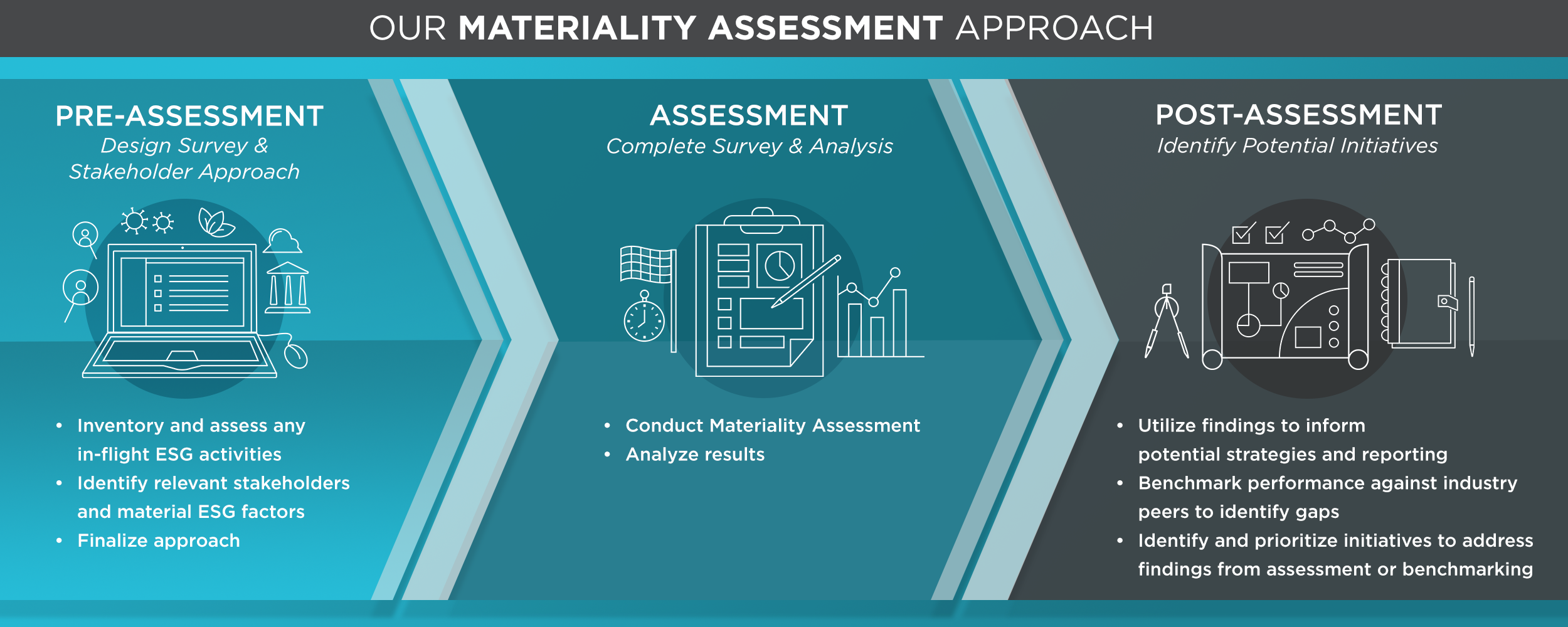
The business environment is changing, and stakeholders are paying attention to the Environmental, Social, and Governance (ESG) practices of companies. Whether the stakeholders are employees, customers, shareholders, creditors, insurance companies, or government regulators, there is growing pressure on companies to consider the impact of their operations on broader society and the environment.
ESG can be viewed through several lenses—risk management/mitigation, value creation opportunities, and stakeholder management. Regardless of the lens, the first step in establishing an ESG strategy is to understand the issues material to your business performance. Once known, these issues should be addressed when deciding on business practices, such as strategic or business planning, capital allocation, and HR policies, to ensure that decisions made are in the best interest of your organization’s long-term health.
A materiality assessment is a structured exercise that helps your company identify specific ESG issues that need attention by surveying or interviewing your internal and external stakeholders. A materiality assessment is an effective tool that serves as a foundation for a comprehensive ESG strategy because it:
By surveying stakeholders, your company will identify material ESG issues—the risks and opportunities. With this knowledge, your organization is in a better position to develop strategies and initiatives to mitigate identified risks or pursue opportunities.
While the basic process for a materiality assessment is standard, each company has its own ESG goals and ongoing activities as well as a unique set of stakeholders and relevant issues that factor into the methodology. All materiality assessments start with ScottMadden working with your leadership to scope the effort by agreeing to relevant ESG indicators and aligning on stakeholder groups to be included. We then capture input from your stakeholders through various methods—from desk research to surveys to interviews. The results from the assessment, potential next steps, and recommendations are summarized in a final report.

For some companies, the materiality assessment process may be the first-time senior leaders engage one another in dedicated discussions about ESG trends, potential risks/opportunities associated with material issues, etc. Leaders come out of the process understanding material ESG issues and how they impact their business.
Contact ScottMadden for more information on how we can assist you with a materiality assessment.
Sussex Economic Advisors is now part of ScottMadden. We invite you to learn more about our expanded firm. Please use the Contact Us form to request additional information.